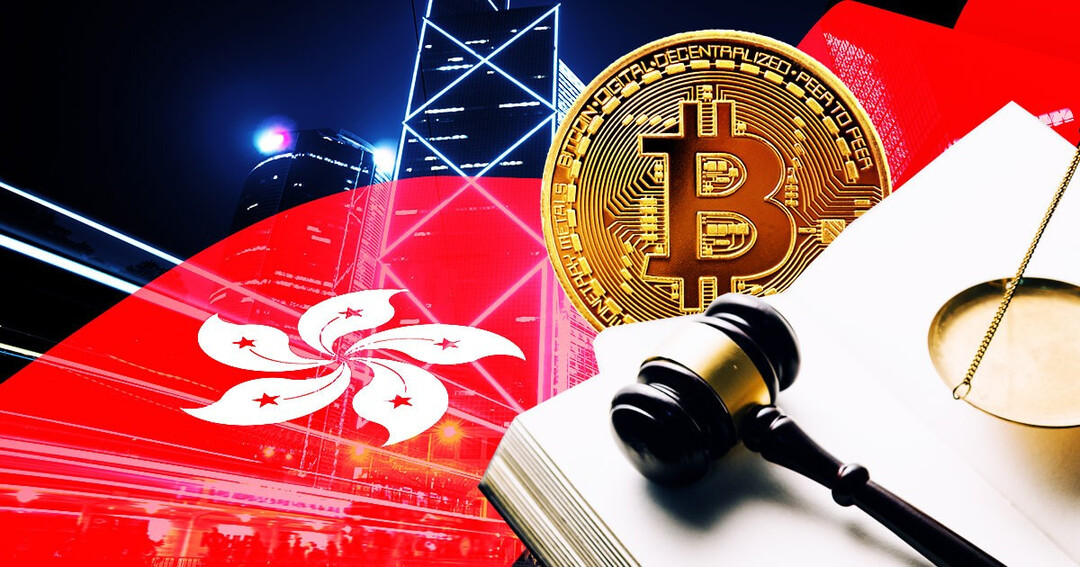
HONG KONG – At a series of Web3 events held in Hong Kong this week, industry leaders emphasized that the tokenization of real-world assets (RWAs) is a pivotal development for the mainstream adoption of blockchain technology.
"Now is the perfect time for our entire industry," stated Shukyee Ma, Chief Strategy Officer at Plume, in an exclusive interview. "After the disappointment in DeFi yields last year, users are looking for something new, and we have tokenized assets ready."
A prominent trend discussed was the development of customized blockchains specifically designed for RWAs, rather than relying on existing general-purpose blockchains.
"All existing public chains were not built for RWA protocols," Ma explained. "That's why we are building this RWA chain and layering DeFi composability on top to make it easier for crypto users to adopt."
Jayant Ramanand, co-founder of MANTRA, predicted, "Over the next 10 years, many traditional fungible assets like US Treasuries, government bonds, and equities will come on-chain. Once these assets are on-chain, they will have fungible and transferable value that can be transferred instantly globally."
Regulatory Challenges and Opportunities
Industry experts underscored that regulatory certainty is essential for widespread adoption.
Elizabeth Wong, Head of Fintech at the Hong Kong Securities and Futures Commission, commented, "To further unleash the potential of this technology and encourage adoption by traditional finance, we have issued circulars providing guidance. We have remained technology-neutral because each blockchain has its pros and cons."
Vivian Mei, a lawyer specializing in RWA regulatory compliance, noted the increasing convergence of global regulatory frameworks, stating, "The overall regulatory landscape is moving towards high convergence in terms of virtual asset definitions, KYC requirements, and compliance standards."
George Chou, Chief Fintech Officer of the Hong Kong Monetary Authority, highlighted the Project Ensemble initiative, saying, "We aim to facilitate payments using tokenized money and explore innovative market infrastructure with the industry and leading experts and pioneers to identify impactful domestic and cross-boundary use cases."
Connecting Traditional Finance and Cryptocurrency
JJ from The PAC, which recently launched a quant fund that has tokenized approximately $100 million in assets, stated, "It's not just about bringing offline assets on-chain, but providing a structural change in how the real world and the virtual world connect."
While financial assets are expected to lead initial adoption, Rachel Keum, CEO of VaultX, presented a different approach by tokenizing fine art assets using NFC technology. "Our mission is to revolutionize RWA ownership by empowering digitally-illiterate creators and collectors to generate new value in the digital economy," she explained, adding that VaultX has already partnered with galleries across Asia and Europe to build a decentralized marketplace where artists can receive continuous royalties from secondary sales.
Consumer-focused applications are also emerging. EudemoniaCC from Morph mentioned the rapid popularity of their Black Card, stating, "The real deployment is not for institutional investors, but for the general public." He added, "We are focusing on payments and spending, enabling people to use their crypto assets in the real world while trying to bring new users into the ecosystem."
What is Real-World Asset (RWA) Tokenization?
Real-world asset tokenization is the process of representing ownership of tangible assets such as real estate, art, commodities, bonds, and stocks as digital tokens on a blockchain. This increases the liquidity of assets, simplifies transaction processes, and makes them more accessible to a wider range of investors.
Why Hong Kong is Becoming a Center for RWA Tokenization:
Leading Regulatory Environment: The Hong Kong government has established a relatively clear and progressive regulatory framework for virtual assets, encouraging innovation and market development. In particular, technology-neutral guidelines for RWA tokenization enable the utilization of various blockchain technologies.
Active Web3 Community: Hong Kong boasts a vibrant community of Web3 developers, entrepreneurs, and investors, which positively impacts the development of RWA tokenization-related technologies and services.
Connection with Traditional Financial Markets: As a long-standing international financial center, Hong Kong can serve as a crucial bridge connecting traditional financial markets with the new digital asset market through RWA tokenization.
Active Government Support: Initiatives such as the Hong Kong Monetary Authority's (HKMA) Project Ensemble demonstrate the government's commitment to building innovative market infrastructure for the settlement and utilization of tokenized assets.
Potential Benefits of RWA Tokenization:Increased Liquidity: Tokenized assets can be fractionalized and traded, making them accessible to smaller investors and increasing overall asset liquidity.
Improved Efficiency: Direct transactions on the blockchain without intermediaries save time and costs, streamlining the transaction process.
Enhanced Transparency: All transaction records are transparently recorded on the blockchain, making it easy to track asset ownership and transfer processes.
Creation of New Financial Products and Services: RWA tokenization can foster the development of new forms of financial products and services such as collateralized loans and derivatives.
Increased Accessibility: Investment opportunities in assets with high barriers to entry in the traditional financial system can be offered to a wider audience.
It is anticipated that RWA tokenization technology and the market will further develop and expand, centered around Hong Kong. Through the advancement of customized blockchain technology, a clear and predictable regulatory environment, and increased cooperation with traditional financial institutions, RWA tokenization is expected to accelerate the mainstream adoption of blockchain technology and play a significant role in building a new financial ecosystem.
[Copyright (c) Global Economic Times. All Rights Reserved.]






























